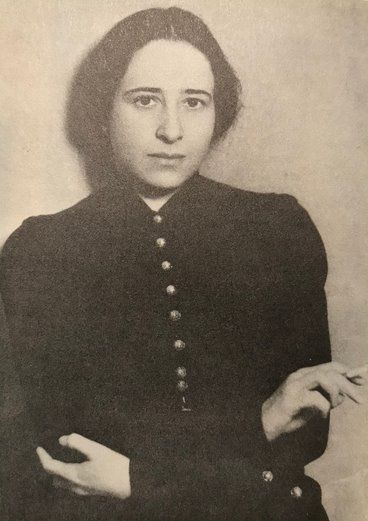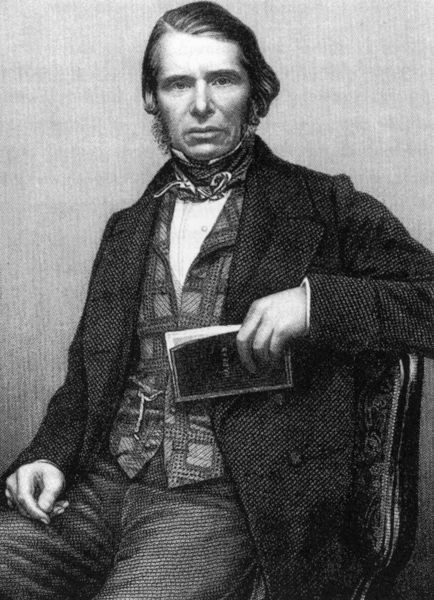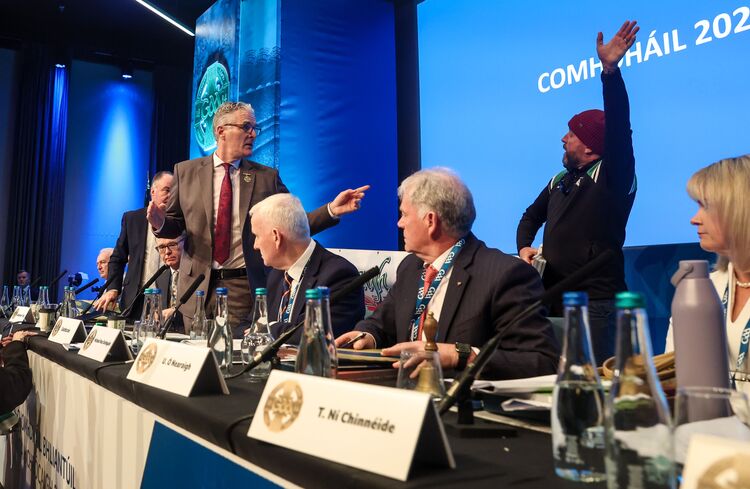Can one do evil acts without being evil? This was the deep and puzzling question raised by the philosopher Hannah Arendt when she reported for The New Yorker in 1961 on the war crimes trial of Adolph Eichmann.
He was the Nazi operative who was responsible for organizing the transportation of millions of Jews and others to various concentration camps in compliance with his government’s policies propounded as the "Final Solution."
Fr. Thomas Merton, the famous Trappist monk and spiritual writer, confronted the same question in an essay entitled "A Devout Meditation in Memory of Adolph Eichmann."
He was impressed that a distinguished psychiatrist examined Eichmann and pronounced him perfectly sane. Merton said that he didn’t doubt the expert’s conclusion, but he considered his findings to be deeply disturbing.
Arendt found Eichmann a rather bland bureaucrat, who in her words was "neither perverted nor sadistic," but "terrifyingly normal." He was driven to complete his work dutifully and diligently with a view to getting ahead in the Nazi bureaucracy.
Hannah Arendt.
She reckoned that he performed terrible deeds without evil intentions. This revealed him as a thoughtless individual unable to understand how his vacuous behavior impacted others.
Lacking any critical insight into his behavior, Arendt concluded that "he committed monstrous crimes under circumstances that made it well-nigh impossible for him to know or to feel that he was doing wrong." While tainted by antisemitism, he was not driven by the Nazi hatred of Jews.
She named these collective characteristics evident in Eichmann’s personality as "the banality of evil." From her perspective, he was not inherently corrupt, but merely empty-headed and bereft of any moral compass.
However, she stressed that she was explaining not justifying his actions, and she did not claim that his eventual death sentence was wrong or excessive.
Other scientific experts strongly disputed Arendt’s thinking. They argued that somehow exempting Eichmann from responsibility because he was a shallow and ambitious bureaucrat inevitably throws a cloak of understanding and even empathy around his horrendous behavior.
There can be no gainsaying that Eichmann spent his days from 1941 to 1944 ensuring the regular and orderly transfer of millions of innocent people to the death camps where they were starved and murdered.
Fr. Thomas Merton.
Fr. Merton in his essay focuses on the moral dimension of decision-making. He wonders about what sane people do "when they exclude love, considering it irrelevant . . . in a world where religious values have lost their meaning." He asserts that we can no longer assume that just because a man is deemed sane that he is in his right mind.
He claims that too often perfectly adjusted people can be relied on to complete their dubious tasks following clear protocols, while setting aside or even disregarding ethical considerations.
In his essay, Merton sarcastically concludes "that God knows such people can be perfectly adjusted even in hell itself."
In highlighting the seeming easy facility of many people with authority to mandate inhumane actions, some moralists question the apparent ease with which President Truman ordered the use of atomic bombs against Japan in August 1945.
This was the only time that nuclear weapons have been used in any conflict, yet we are told that Mr. Truman slept well the night he signed off on that frightening decision.
His successor in the White House, General Eisenhower, and the imperious General MacArthur later distanced themselves from the awful decisions made to bomb Hiroshima and Nagasaki.
In fairness, it should be stressed that President Truman agonized over the dilemma he faced and consulted widely before making the portentous choice.
Talking about the banality of evil inevitably raises the issue of slavery in America. Though the United States did not invent chattel slavery, it certainly perfected it. In that system, individuals, their families and offspring were permanently owned by their master. They had no rights based on their humanity; in fact, they were not even viewed or talked about as persons.
There were four main features of chattel slavery as practiced in the United States for 250 years which made it different and more horrifying than any previous type of enslavement.
First, it was permanent. While a few slaveholders chose to release their slaves, the vast majority held that their slaves were marked by permanent servitude.
Second, it was almost exclusively race-based, involving the enslavement of blacks who were deemed inherently inferior because of their African lineage.
Third, it denied essential personhood in what was commonly spoken of as “Negro Slavery.” Most Southern preachers pronounced that black inferiority and subjugation were ordained by God.
Finally, American slavery was a big business with healthy slaves fetching around $50,000 in today’s money.
The importation of slaves was banned in 1808, but those already in servitude were encouraged to produce plenty of children which more than compensated for closing the ship lanes which previously brought an abundant supply of forced and free labor. To enhance their worth, traders published pamphlets outlining the best breeding practices that improved the physical quality and thus the monetary value of slaves.
Surely, this whole procedure highlights banality. The men and women profiting from these practices were almost all practicing Christians. The imposition of black servitude by the passage of cruel laws that stripped colored people of their humanity remains a testament to the persistence of racial prejudice.
The Great Famine (an Drochshaol-the Awful Times) in Ireland was described in the Times of London in March 1847 as "a mass of poverty, disaffection and degradation without a parallel in the world. It allowed proprietors to suck the life-blood of that wretched race." About a million died throughout the island and many others perished on "coffin ships" trying to make their way to a safe haven anywhere.
Successive Westminster governments only provided minimal relief because they were committed to trusting the markets to respond in some mysterious way to the crisis. This banal philosophy is called laissez-faire. Charles Trevelyan, the head of relief services in Ireland, wiped his hands clean while pointing to the capitalist belief that the markets would sort out the increasing tragedy.
Banality as used by Hannah Arendt, Fr. Thomas Merton and others involves a moral and political failure by people with power to take responsibility. In the Eichmann trial, the Nazi philosophy is fingered for culpability.
In slavery, most white people benefiting from free labor accepted that somehow God had designed them to dominate blacks.
And, in this world, where nobody accepts responsibility, laissez-faire can be blamed for the suffering of untold millions.
Gerry O'Shea blogs at wemustbetalking.com









